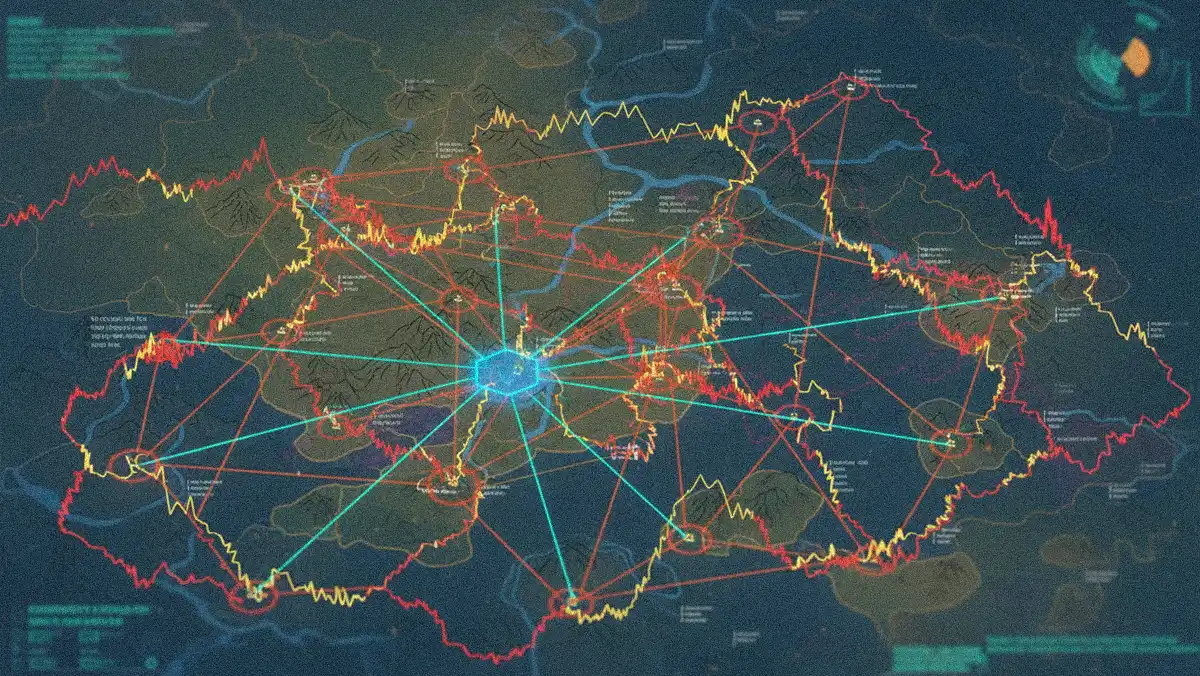
The explosion of AI-generated content created a paradox where the cost of creation plummeted, but the cost of mismanagement and liability skyrocketed.
Cybersecurity expert Dr. Victor Monga of Palo Alto Networks framed the issue as a governance crisis, warning that technology is outpacing policy at an unprecedented speed.
He advised leaders to focus on fundamental security practices, such as training employees to treat sensitive data entry as a classic endpoint security problem, rather than drafting performative AI policies.
The cost of creating content has plummeted to virtually zero, but the cost of mismanaging it has never been higher. Governance, liability, and intelligent delivery emerge as major challenges in a world where content is cheap and trust is expensive. While the long-held marketing mantra that "content is king" was once true, one expert argued that a new force has emerged to claim the role of "kingmaker."
We spoke with Dr. Victor Monga, Cortex Domain Consultant at Palo Alto Networks and CISO at Virtually Testing Foundation. Drawing on two decades of experience as a practitioner, architect, and community leader, Monga offered a powerful new framework for leading through the current content disruption.
"Content used to be king, and if that’s the case, LLMs are the kingmaker." That creates an immediate and pressing problem: a chaotic, unregulated environment where accountability is dangerously ambiguous. For Monga, the widespread use of shared AI models has created a governance vacuum, introducing complex legal risks that most organizations are unprepared to face.
The homogeneity risk: “Imagine Coca-Cola using an LLM, but it’s the same ChatGPT that Pepsi is using. Both enter almost the same prompt, and both end up with almost the same content. Is that infringement? Where is the liability? Inspiration used to come from a mood board or the writer. Now the inspiration comes from the LLM. The mood board is built by the LLM. I don’t think anyone has cracked that nut yet.”
This creates a significant risk of what some analysts call "content homogeneity," where brands inadvertently produce generic or near-identical outputs, eroding brand distinction and raising complex questions of intellectual property. This pattern—technology outpacing governance—is a familiar one. Monga drew a direct parallel to previous technological upheavals like the internet and cloud booms, but with a critical warning: AI is moving infinitely faster, and organizations cannot afford to wait for regulatory bodies to catch up.
The playbook for a new era: “Don’t go full-tilt into AI policy-building. Go back to basics and train your employees on what data they are entering. For prompting, tell them to use general terms. Instead of saying, 'I work at Pepsi,' they should reference 'a beverage company.' Uploading a PDF or a forecast screenshot? That’s an endpoint issue, not an AI issue. And for startups, don’t copy enterprise security. Treat AI as just another exposure point and ask: how do I get the maximum security with the minimum effort?”

This back-to-basics approach is essential because most current corporate AI policies are little more than corporate theater. “Everyone says they have something, but it’s just a glorified ‘be responsible’ policy,” Monga noted. “So instead of hiring expensive consultants, train your employees. Show them the risks.”
Governance is growing increasingly critical because the purpose of content itself has evolved. It’s a challenge Monga admitted he grappled with personally.
The new goal of content: “I struggle myself. I used to just write and be done with it. Now I have to think about how I keep the reader on the article and how to keep them engaged. I don't want them to just read; I want them to take action from what I’m saying.”
To unlock what AI is truly capable of, leaders must stop treating it like a toy for entertainment and start managing it as a critical business function with real risk and immense upside. Monga shared a CEO’s vision of the end-state: a company with only two departments—those who generate revenue and those who support them—where every employee has a personalized, company-trained AI assistant.
“No layers. No Slack, no tickets. Just ask. The AI handles support, with humans only where needed. If I were building my own LLM, that’s the vision I’d aim for.”
.svg)





